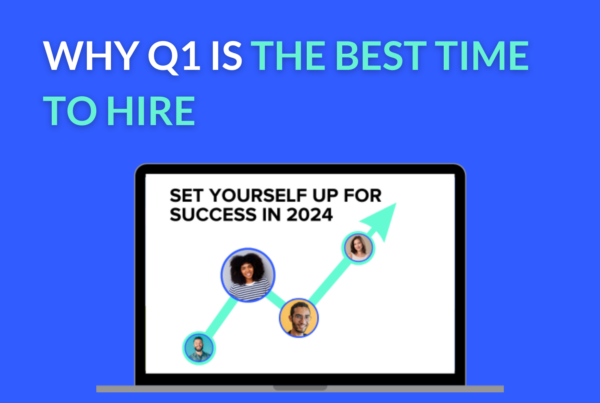A startup demands much more than just a great idea. It requires time, discipline, dedication and most importantly, funding. Without funding, the vast majority of startups fail to scale and get their product made.
The business landscape has transformed, and with it, startup funding has surged. As a FinTech Founder, you must evaluate where your startup stands in the competition and how much funding you can raise to get your company off the ground.
But how does it all work? As a scale-up business working with FinTech startups globally, we have put together a funding guide of everything you need to know to raise the seed funds critical to grow your business.
What Is Seed Funding?
The path for every startup is different, as is when to raise funds. Many businesses can spend years in search of initial funding, while others move through the process more quickly. This early financial support is the “seed” that helps the business to grow, financing the product launch, supporting early traction through marketing and initiating important hires and market research for developing product-market-fit.
The amount of money required to take a startup from initial concept to profitability is usually beyond the ability of personal funds and family and friends to finance. There are many potential investors in a seed fund, one of the most common being an ‘angel investor’. Angel investors tend to steer towards riskier ventures, accepting an equity stake in the company in exchange for their investment. VC firms on the other hand explicitly target new, early stage companies, requiring more time, more meetings and will have several partners involved in the final decision.
Another investor to consider is from a ‘crowd’, known as crowdfunding. Rather than one or two major investors, you can capture the attention of a large number of backers and convince them your project is worthy of their investment. AngelList, Kickstarter, and Wefunder are some high-profile crowdfunding sites that can be used to launch a product, run a pre-sales campaign or find venture funding.
In the past few years, accelerators and incubators have become increasingly popular. With both requiring equity in exchange for their services, accelerators are fixed-term programmes designed to help ventures showcase their business to investors, whereas an incubator is a company that helps startups by providing workspace and capital for an unspecified amount of time.
Why Do You Need Seed Funding?
Around 29% of startups fail without seed funding, making it critical to get a business up and running. This stage is particularly important as it allows you to get things started before the business earns any revenue; an effective solution to work on your idea.
The first few months of launching a startup require a heavy amount of capital due to investing in all channels necessary to establish the value of your product or service. Seed funding covers the costs that quickly mount up. Adding an investment partner on board will also add to your business expertise and hold you accountable to business goals. If the investor’s and founder’s vision are in sync, the startup is prized with the necessary catalyst for rapid growth. All of this will give you a competitive edge in a highly competitive funding process.
However, it is crucial you have a funding plan. Only those businesses that show a promising track record of organic growth and utilisation of investor funds will be in the running for further funding rounds.
When Do You Need Seed Funding?
The rule of thumb with funding timing is whenever a startup can raise money, they should. If you have an idea that is compelling and exciting, you should start approaching investors. But there are a few things you should keep in mind before taking this step.
- Have you got the right team in place who are just as invested as you?
- Have you gained credibility by speaking to experts in your industry?
- Have potential investors been vetted?
- Has the product/service been tested?
- Do you have an authentic brand story to tell?
For every business, the right time will be as unique to you as your business plan and your product. Your first seed capital is the hardest so any unprepared or premature move can prove risky for future investment. If the time is right, you must ensure you are equipped to fight your corner.
- Despite little financial data, an early-stage startup must attain a company valuation. This is the reference point investors will use to decide on their investments.
- As the Founder, you must draw up a detailed business plan. An impressive business plan is comprised of a detailed financial analysis, marketing strategies, and other relevant business reports that clarify how much money is being raised, for which purpose, and the expected ROI for seed funding investors.
- Seed funding happens in exchange for equity in the business, so you must be prepared for a lack of privacy. Investors will be involved in a lot of the decision making and will gain access to proprietary information.
- Paperwork needs to be in line with SEC guidelines before approaching investors. Unavailability will disqualify you from any funding rounds.
“Most seed rounds will require you to give up 20% dilution and you should try to avoid more than 25%. In any event, the amount you are asking for must be tied to a believable plan. That plan will buy you the credibility necessary to persuade investors that their money will have a chance to grow.” Paul Graham, a Silicon Valley Entrepreneur and Venture Capitalist
How Much Should You Be Raising?
Seed funding rounds vary significantly in terms of the amount of capital they generate, producing anything from $10,000 to up to $2M depending on the type of business and industry.
Startup funding is based on milestones, therefore the size of seed funding will be small and increase organically over the years. It is logical to invest larger funds only after the startup has started to generate revenue and built a customer base.
Discounted Cash Flow, Venture Cap Method, and Market Comparable Method are some of the tactics used when evaluating how much funding is raised. They focus on the startups future potential and that determines the value of the business at present. With this metric as a base, both founders and investors arrive at a seed fund value.
Who In Your Business Should Be Responsible?
Finding credible investors with the resources to invest and convincing them to commit is a time and resource-consuming challenge. To ease this pressure, consider hiring a Finance Director or CFO who will have the experience to advise on whether decisions are financially sound, in regards to available resources, regulatory compliance and funding options.
Your dedicated finance person will be able to monitor key financial figures sought after by investors, knowing when the time is right to acquire funding.

Seed funding is only the first step towards a startup’s interaction with the wider business environment. Managing this equity is a crucial element in stabilising the startup’s financial reliability. We can help you manage this by advising and connecting you with the best Finance talent for your FinTech startup. To speak with our specialist consultants who hold a vast network of FinTech specialists, get in touch.







